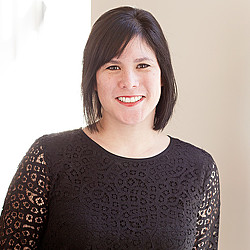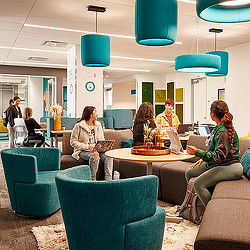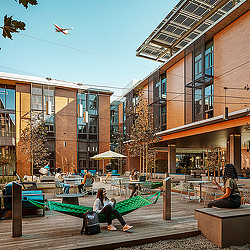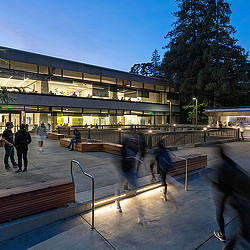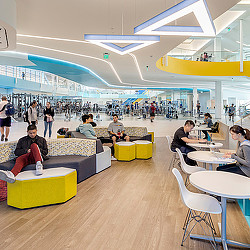Insights Into the Pandemic’s Impact on Student Well-Being
We explore how our shift out of the pandemic is impacting student relationships, motivation, and emotional well-being.
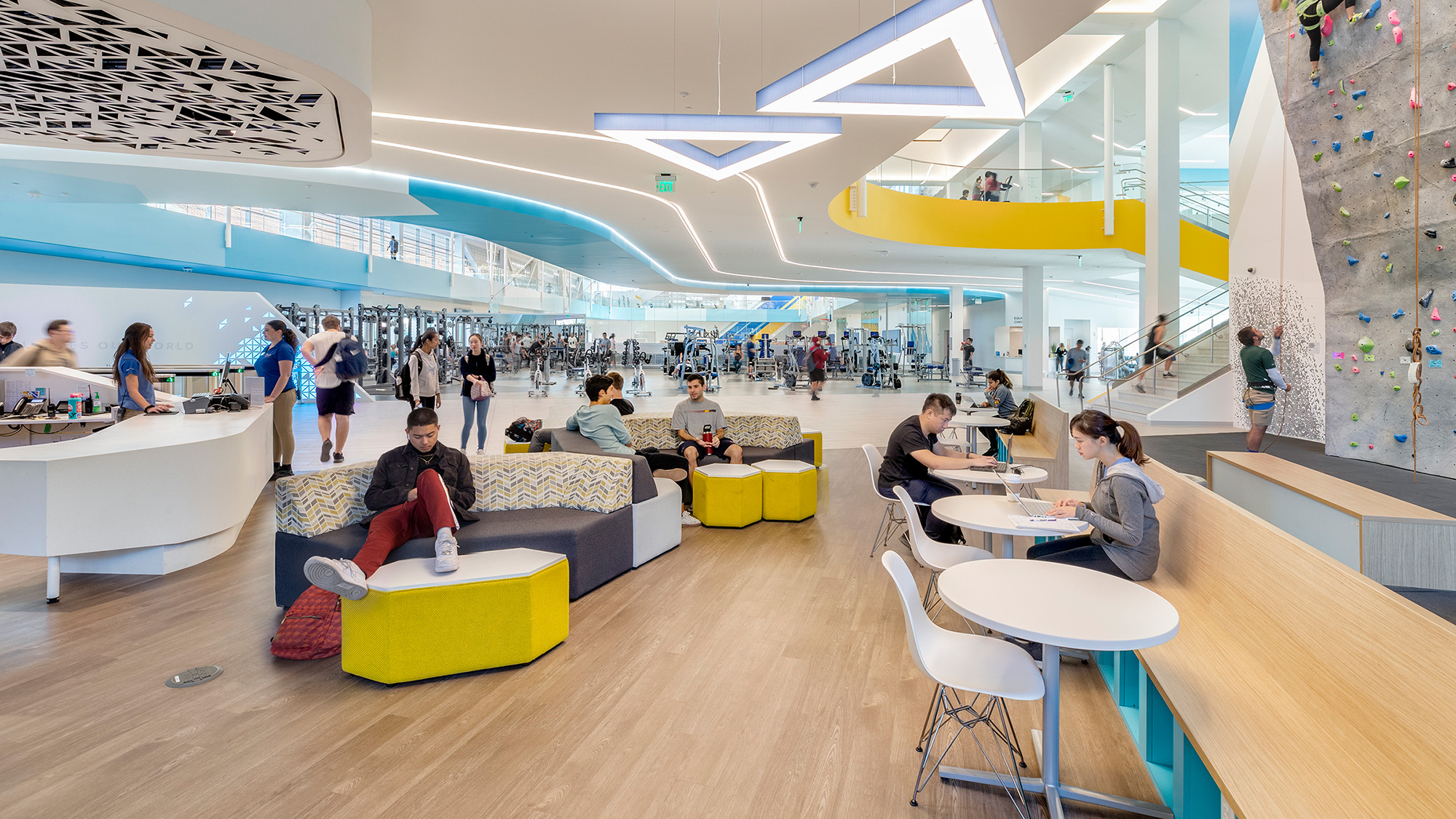
Editor’s note: This is the fourth blog in this series. To learn more about the 2023 Education Engagement Index survey, please read part one with overall findings, part two on hybrid learning, and part three on academic workplace. Learn more about our survey method here.
The COVID-19 pandemic brought a new focus on well-being, not just physical, but also emotional well-being and other factors that support a multidimensional approach to health. This is especially relevant on college and university campuses, where the current cohort of students had their education disrupted by the pandemic. Whether in high school or college at the time, they were forced to isolate during a critical point in their personal and academic development.
In this installment of our Education Engagement Index blog series, we look at how our shift out of the pandemic is impacting student relationships, motivation, and emotional well-being.
For the purpose of the study, we explore engagement using the following framework:
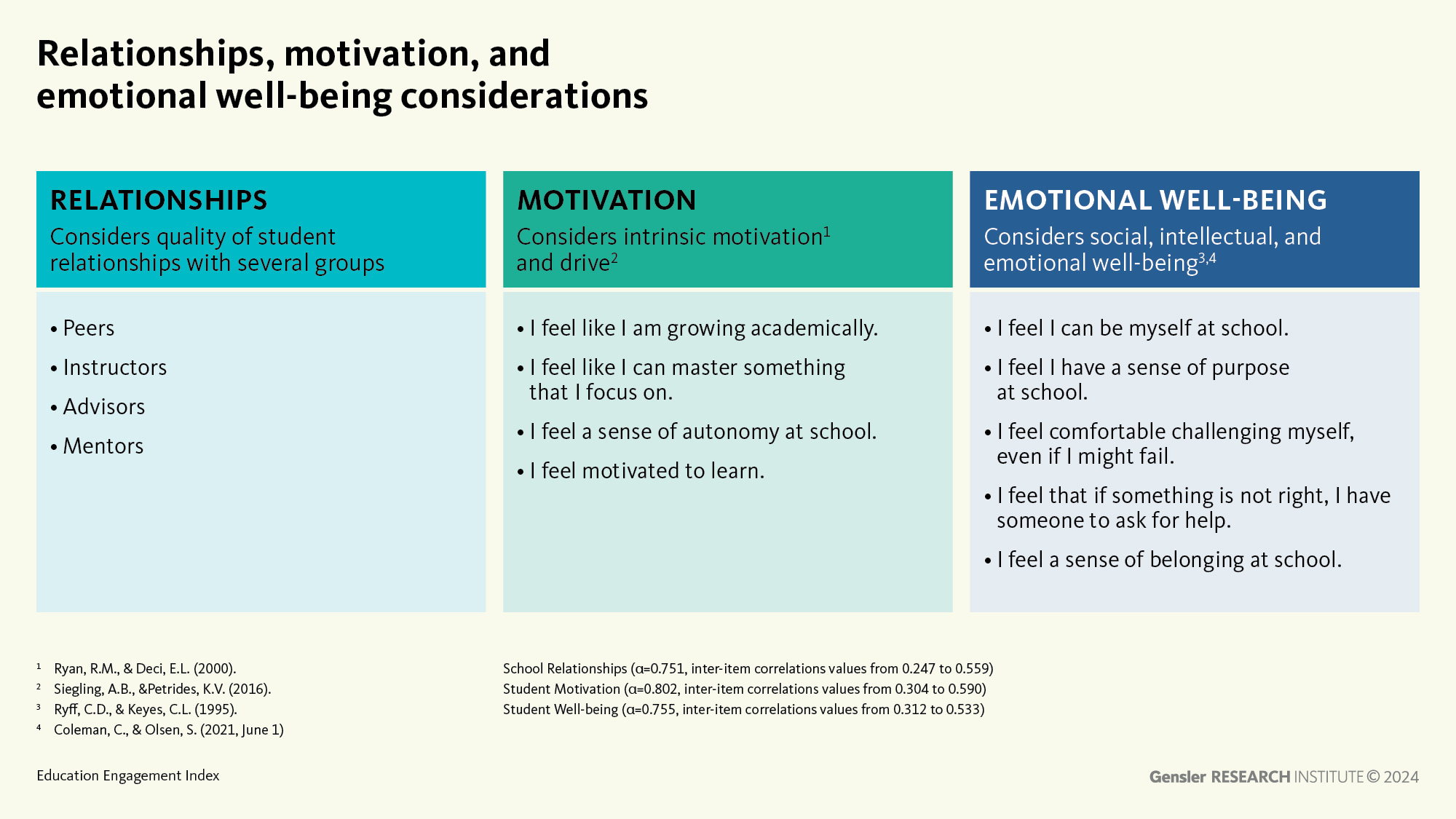
In our national survey of 2,500 students, educators, and staff at U.S.-based colleges and universities, we asked students about their relationships with instructors, mentors, peers, and advisors, and in all cases they reported weaker relationships in 2023 than in 2022, with some falling below pre-COVID levels. Similarly, on the questions related to motivation and emotional well-being, there was a significant decline in nearly all questions.
Students’ sense of belonging is of particular concern, as this was the lowest scoring question, and it shows the greatest decline from pre-COVID level. This data was surprising to the research team. According to our research, students’ presence on campus increased between 2022 and 2023. However, this increase in contact with others does not appear to have translated to improved relationships, sense of belonging, or other aspects of emotional well-being.
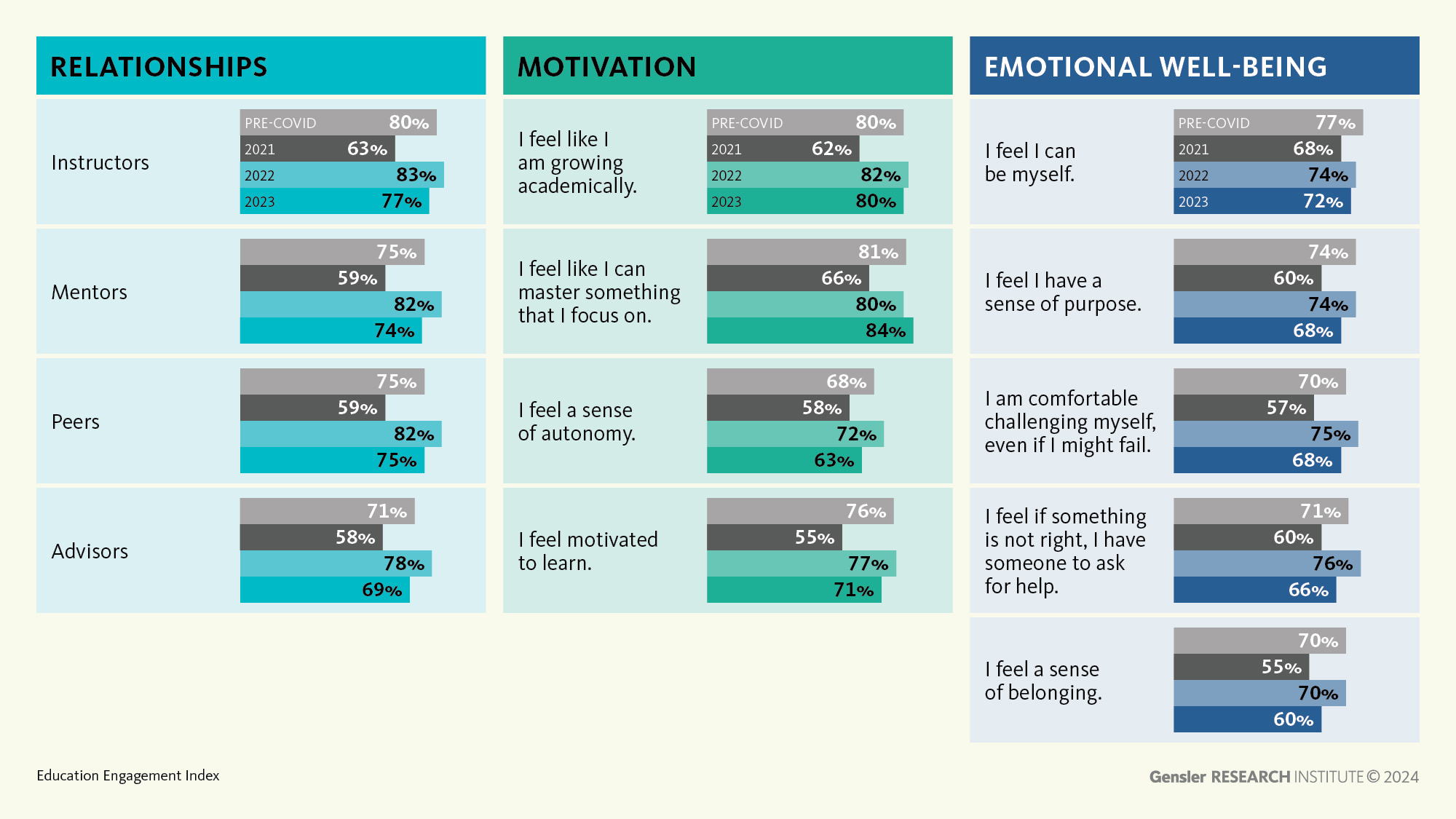
When we disaggregated the responses by students’ modality of learning — fully on campus, fully virtual, or hybrid — there were no significant differences between the groups. This suggests that relationships, motivation, and emotional well-being are not significantly impacted by modality; instead, other factors have a greater effect, which could include broader health considerations, conditions within the institutions, and geopolitical conditions.
The role of the campus community
We were curious if (and how) students’ relationships may impact their motivation and emotional well-being. In analyzing the responses across these question sets (through multiple linear regressions), we found that instructors have the greatest impact on students’ motivation, and peers have the greatest impact on students’ emotional well-being. Advisors had the least impact on motivation and emotional well-being of these four relationship types.
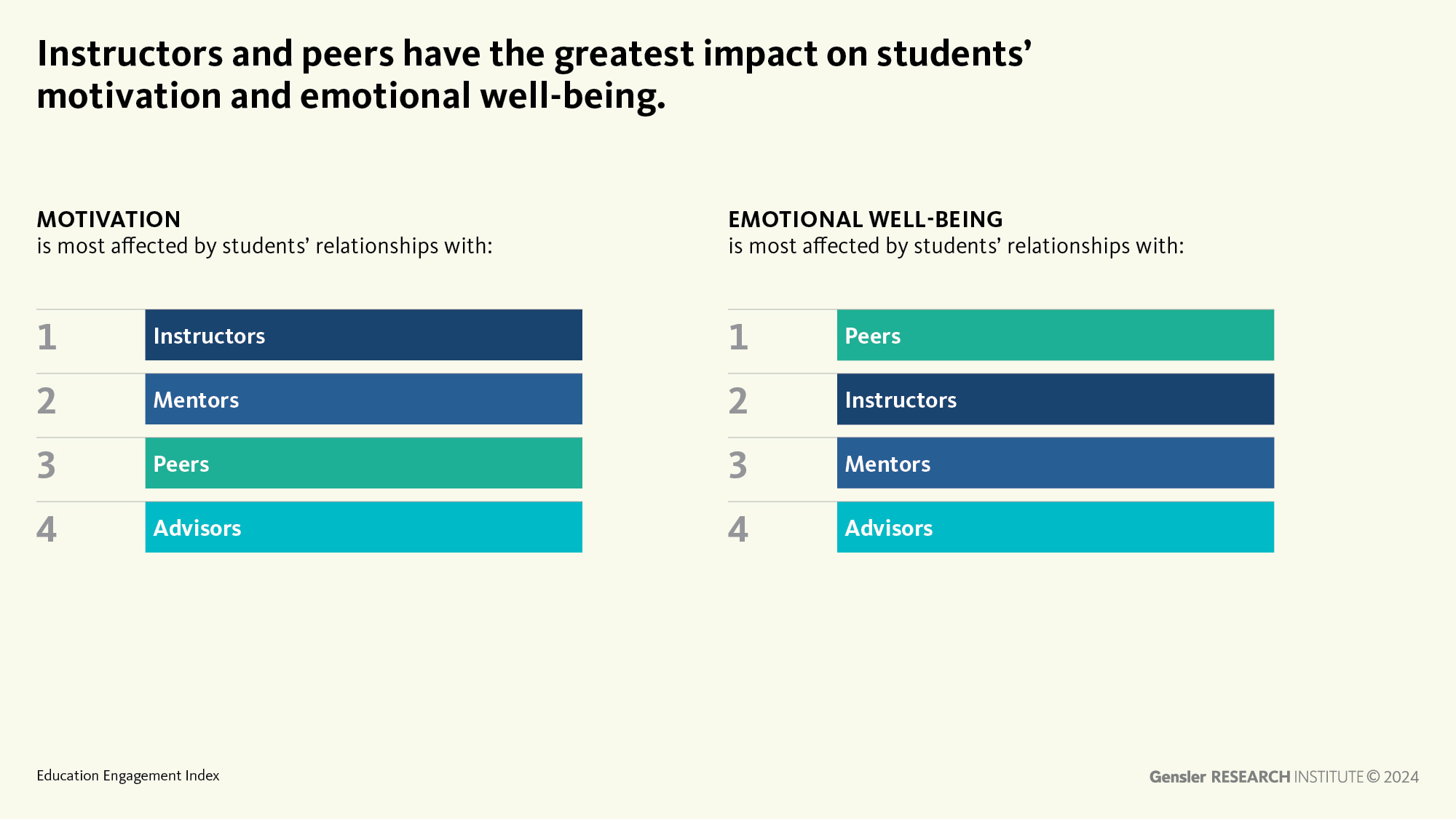
Embracing a Multimodal Approach to Student Services
We cannot explore relationships, motivation, and emotional well-being without considering the ecosystem of services that are supporting students. Many institutions are increasing their range of services, as well as the depth of support that they provide. In looking at how students would like to engage with services, responses indicate that having both in person and virtual options are very important, and there is a desire for virtual access to all services.
If institutions embrace a multimodal approach to providing services and support, there are many potential benefits. Although this may require a shift in mindset and an investment in technology, campuses may be able to reduce office space and make real estate available for other uses, while satisfying students’ desire for choice in how they access support.
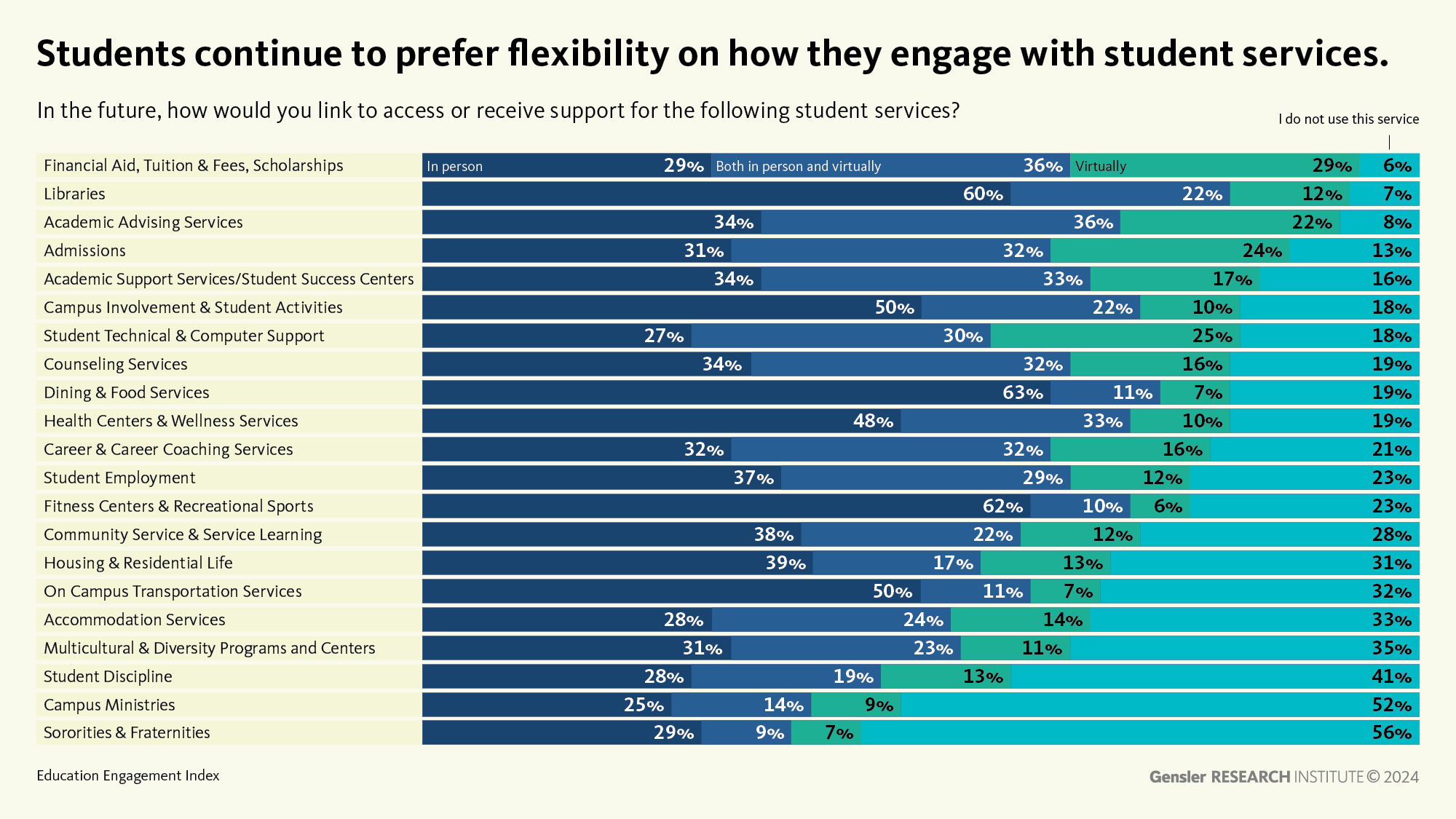
Although, for many, the pandemic is in the past, we are still feeling its effects and understanding its impact. There may be longer lasting negative impacts on health and well-being than we anticipated, but there may also be positive outcomes, based on our resilience and ability to develop solutions, that take hold in the “new normal” that is emerging. As institutions settle in to the post-pandemic landscape, it is essential to continue to support relationships, motivation, and emotional well-being in a multidimensional approach to student health and success.
Education Engagement Index 2023 Methodology
We deployed an online survey to an anonymous panel of 2,479 students, educators, and staff members at U.S.-based colleges and universities. Responses were collected from May 1 to June 7, 2023. This study was conducted through the Gensler Research Institute, a network of researchers and thought leaders who create insights that our education designers and strategists can use to tackle campuses’ toughest challenges, such as the student, faculty, and staff experience.
To learn more about the 2023 Education Engagement Index and how the findings relate to your Institution, please contact .
For media inquiries, email .

